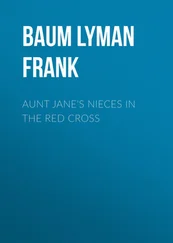John Schwartz - The Red Daughter
Здесь есть возможность читать онлайн «John Schwartz - The Red Daughter» весь текст электронной книги совершенно бесплатно (целиком полную версию без сокращений). В некоторых случаях можно слушать аудио, скачать через торрент в формате fb2 и присутствует краткое содержание. Город: New York, Год выпуска: 2019, ISBN: 2019, Издательство: Random House, Жанр: Историческая проза, на английском языке. Описание произведения, (предисловие) а так же отзывы посетителей доступны на портале библиотеки ЛибКат.
- Название:The Red Daughter
- Автор:
- Издательство:Random House
- Жанр:
- Год:2019
- Город:New York
- ISBN:978-1-40006-846-3
- Рейтинг книги:4 / 5. Голосов: 1
-
Избранное:Добавить в избранное
- Отзывы:
-
Ваша оценка:
- 80
- 1
- 2
- 3
- 4
- 5
The Red Daughter: краткое содержание, описание и аннотация
Предлагаем к чтению аннотацию, описание, краткое содержание или предисловие (зависит от того, что написал сам автор книги «The Red Daughter»). Если вы не нашли необходимую информацию о книге — напишите в комментариях, мы постараемся отыскать её.
The Red Daughter — читать онлайн бесплатно полную книгу (весь текст) целиком
Ниже представлен текст книги, разбитый по страницам. Система сохранения места последней прочитанной страницы, позволяет с удобством читать онлайн бесплатно книгу «The Red Daughter», без необходимости каждый раз заново искать на чём Вы остановились. Поставьте закладку, и сможете в любой момент перейти на страницу, на которой закончили чтение.
Интервал:
Закладка:
My Dearest Peter,
You will be surprised by all this. But you promised me, remember? On the plane from Zurich. You ordered vodka martinis from the stewardess for us both and I asked what is it and you said it’s only the greatest drink in world. All night and into the morning we drank, I was too frightened and excited to sleep, then finally out the blue window we saw your tiny island with its strange name: Block Island. My first sight of America. You said you had a summer house there. I must come and stay with you and your family. And I thought to myself, Americans, they are all like this? Come to my house, live with my family. Come inside, welcome. So that summer I stayed on Block Island with you. I saw your daughter, Jean, run naked on the rocks. Martha in her tennis skirt. We ate lobster over newspaper. You showed me American fishing. I took my first shower outdoors. You and I, we drank that evening on your porch. I know you remember.
But here is the thing, Peter: my father’s cage turned out to be attached to me. It went where I went. Years passed and the bars turned from gold to brass, but never disappeared. I feel them still in my breast now as I write these private words that I have been writing ever since I first came to this country so many years ago—this country that you brought me to with your own hands and heart.
Here they are, Peter. My other words, for what they are worth. I hope you know what to do with them. Since I do not.
Do not regret me, Peter. You I will never regret. I would take that flight again if I could, your hand on my arm, wherever we land.
Your loving SvetlanaIn all, there were twenty-eight identical school-ruled notebooks with cardboard covers. Every page of every book filled with her Russian. They sat in my study for several months—unread, obviously, since I have never learned the language.
And then one day I received a reply to an ad I’d placed at the back of Princeton’s alumni magazine asking for a native-speaking Russian translator with experience. Vera Dubov is currently Visiting Lecturer in the Department of Slavic Languages and Literatures at Princeton University. She worked tirelessly on this challenging project for the better part of a year, and I am indebted to her for bringing Svetlana’s private world to life with the tone, rhythms, and emotion that I recognize as true. Reading my dearest friend translated from her own Russian allowed me to realize for the first time, with a force that still takes me by surprise, that until now I had known her only in her second language, that is in English, which, while accomplished, could never possibly show the whole of her.
Now that woman has been revealed to me. What else can I be but grateful? Yes, grateful and moved.
What you are about to read, then, is a selection of Svetlana’s private journals, made by me, from those twenty-eight notebooks that she put in my trust after her death.
I wish to emphasize that all “editorial notes” in this volume are mine alone. If in the end they strike the reader as more intimate and personal in nature than would be expected under such circumstances—giving my own story, as it were, mingled with hers—I make no apologies. I may call myself her editor, but that is not what I was.
There are things I’m trying to understand while there is still time. She might be gone, but I am still here. I still have my feelings. I still want to know—sometimes I think I do know—who she really was, and what, in the end, we were together.
PETER HORVATH Princeton, NJ April 2015THE PRIVATE JOURNALS OF SVETLANA ALLILUYEVA
23 April
Locust Valley, New York
3:40 A.M.
My father would have had me killed for what I’ve done. And then he never would have given me another thought.
People believe that because my mother died how and when she did, and because my father became what he became, that he alone must be the mountain in my life—the immovable object that I can neither climb nor see around.
Why I have made this choice to abandon my two children and my home to wake in this foreign darkness, in this strange country, in a stranger’s strange house.
But people are wrong. They will always be wrong. My father is not the mountain.
My father is the shadow on the mountain that keeps me from seeing the mountain.
The mountain is my mother.
Instead of actual memories I’m left only with impressions, stolen from photographs or the odd letter, of a strong dark-haired young woman with a wide oval face, full mouth, and the saddest eyes I have ever seen. When she was angry or disappointed, it could be as if a translucent shutter had slid down over those eyes, a shutter not from outside but from within her; I remember feeling a terrible cold distance where I wished she had been. I remember her voice saying to my brother Vasily and me, The more time you have, the lazier you are . I remember her rapping my knuckles raw one day when she discovered that I’d cut up her new tablecloth with a pair of shears. I remember almost never being with her, yet sensing her firm committed presence everywhere I turned, an omnipresent shadow that I could see but not hold. I remember the scent of her French perfume—which my father hated, since it was a luxury, and which she wore anyway, fiercely protective of this one personal indulgence—still lingering on my pillow the mornings after those very rare nights when she would stay with me and stroke my head as I fell asleep.
Nadezhda Alliluyeva met Josef Stalin when he was twenty-five and she was a toddler of two; he was a family friend, so the story went, and saved little Nadya from drowning. She wouldn’t see him again until she was sixteen; by then she was at least as devout a Communist as he was, as well as beautiful and fearless. And he was a hero to many. Yes, in those days of Civil War following the Bolshevik victory, when the fate of the Great Revolution was still uncertain, my father was in the throes of establishing himself as Lenin’s Man of Steel. He asked Nadya to accompany him to Tsaritsyn (soon to be Stalingrad) as his personal secretary, an offer she accepted without hesitation, since she was probably already in love with him.
Two years later, in the thick of the growing cult of violence of which my father was the unquestioned conductor, they were married.
I was six months old when she first tried to leave him. This was in 1926, and her disillusionment over what he was then becoming must have been profound. She and my nurse packed up five-year-old Vasily and me and piled us all onto a train to Leningrad, where we moved in with my grandparents. We would start new lives, free of his tyranny! Yet several days later, when my father telephoned, beside himself, enraged, beseeching, threatening to come fetch us himself, my mother quickly relented, all the while insisting that we would return by ourselves, without his bloody help, so as to save the cost to the State.
Until I was sixteen, I was led to believe that her sudden death on the night of 8 November 1932, was caused by a ruptured appendix. I was not alone: the entire nation believed this.
Then one day, ten years after the fact, I happened across an article in a British magazine that referred to my mother’s death as a suicide. Joseph Stalin’s second wife, I read, had shot herself in the heart in her bedroom, where she had gone after my father publicly humiliated her at a state dinner. And this had always been known by certain people in my father’s inner circle, it was reported, including my dear nurse, Alexandra Andreevna, who had raised me from the moment I was born.
I went straight to my nurse and demanded that she tell me everything she knew about my mother’s death. Weeping from shame and grief, Alexandra Andreevna did as I asked. And so I learned not only that the magazine article was true but that my mother had left behind a suicide note for my father in which she called him a monster and a murderer. Those had been her exact words. She had cursed him and declared that she would never forgive him for destroying the soul of the Party and, with it, her hope for a better world for her and her children. Then she had shot herself and left her dead body for him to find.
Читать дальшеИнтервал:
Закладка:
Похожие книги на «The Red Daughter»
Представляем Вашему вниманию похожие книги на «The Red Daughter» списком для выбора. Мы отобрали схожую по названию и смыслу литературу в надежде предоставить читателям больше вариантов отыскать новые, интересные, ещё непрочитанные произведения.
Обсуждение, отзывы о книге «The Red Daughter» и просто собственные мнения читателей. Оставьте ваши комментарии, напишите, что Вы думаете о произведении, его смысле или главных героях. Укажите что конкретно понравилось, а что нет, и почему Вы так считаете.












